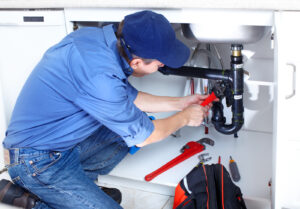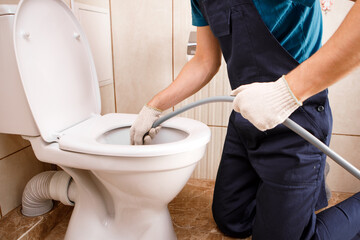Types of Plumbers
Plumbers are the professionals who install potable water, sewage, and drainage systems. They are also skilled in plumbing and repairing and installing plumbing fixtures. Plumbing is a highly specialized profession that demands specialized tools and knowledge. There are many different types of plumbers, including residential, service and repair, and master plumbers.
Master plumbers are licensed professionals who specialize in specific areas. These professionals must be capable of working in confined spaces, interpreting blueprints and codes, and communicating with clients. A master plumber is also skilled in drawing plans and alterations to existing systems. He or she should also possess some knowledge of mathematics. In addition to these qualities, plumbers must be knowledgeable of safety rules and regulations.
In order to become a master plumber, an applicant must pass an examination. The examination consists of a number of questions covering several subjects. Some questions are plumbing specific, while others focus on business law, contracts, obligations, and other aspects of the trade. These questions are designed to ensure that a master plumber can draft contracts and perform plumbing services professionally. The goal of the licensing process is to protect consumers by ensuring the integrity of the profession.
Before becoming a master plumber, prospective candidates must have at least a high school diploma or GED. Many states require that plumbers have two years of experience as journeyman plumbers before applying for a master plumber license. Once licensed, a master plumber can supervise junior plumbers, pull permits for projects, and operate a plumbing business. In addition, many states offer specialty license classifications for specific areas of plumbing. For example, plumbers can choose to specialize in residential plumbing, pump and irrigation, or domestic wells. Although specialty licensing requires less experience, it does not guarantee that the plumber is qualified to perform those duties.
Master plumbers are considered leaders in the plumbing industry. They are members of the Master Plumbers Council, a non-profit trade association with a rich history. The Master Plumbers Council also works to promote the plumbing industry as a whole. This organization is one of the strongest political organizations in the city and is actively involved in promoting the benefits of hiring a licensed plumbing company.
A master plumber is a licensed professional who has passed rigorous training and testing. His job duties include designing, installing, and maintaining various plumbing systems in buildings. They may also perform repairs and maintenance work on fixtures and appliances. Some master plumbers are self-employed, but many work in construction companies and local governments. They may also supervise apprentices.
The salary of a master plumber is relatively high. In the States, master plumbers earn an average of $28,966 per year. The highest-paid master plumbers earn up to $68,611 per year. Some states, however, require plumbers to complete an apprenticeship for several years before being allowed to practice independently.
Apprentice plumbers must have 6,000 hours of training and have completed a practical exam in their chosen trade. Apprentices must be at least eighteen years old, have a high school diploma or GED, and have completed a plumbing apprenticeship program. Apprentices must also hold a current out-of-state plumbing license.
Service and repair plumbers are those who diagnose and repair plumbing systems. They receive technical training and have a variety of skills and experience. Their primary responsibility is working with customers and solving problems. These plumbers also must be personable because they may need to interact directly with clients. Service and repair plumbers can work in residential, commercial, or industrial settings.
Service and repair plumbers are responsible for troubleshooting plumbing systems in residential and commercial settings. They also respond to plumbing emergencies and deal with stressed home and business owners. A water supply plumber is responsible for the flow of water inside a building and installs and repairs water tanks and lines. They must be licensed to perform these services.
Service plumbers also specialize in repairing pipes and drains. They also work on septic systems. Service plumbers usually deal with residential plumbing emergencies, such as clogs, leaking pipes, and leaks. They must be friendly and have a broad knowledge of plumbing systems to be effective.
Plumbing repair is essential for ensuring that water is available for drinking and cooking and plumbing mechanisms are functioning properly. It is easy to forget how important plumbing is until something goes wrong. Residential plumbers recommend a yearly checkup of their plumbing systems. This is because plumbing problems can strike at any time, including in the middle of winter.


